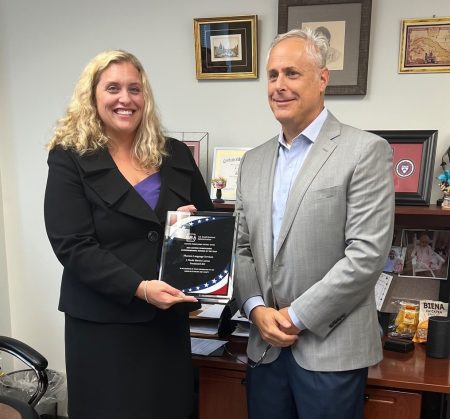When considering retirement, should I prioritize my money?
If you regularly save money, have cash in the bank, little to no debt, and plan for retirement, then this article may not be relevant to you.
However, if you spend money freely, have high credit card balances, and don't think about your future much, it might be time to change your behavior. It's okay to say "no" to spending money and prioritize your own interests.
According to a Bankrate survey from November 2023, 49% of credit card holders had debt from month to month, and in 2022, 23% of Americans had no emergency savings.
Sadly, we live in a world of consumerism. If you don't live in a luxurious home, drive a fancy car, or dine at top-notch restaurants, you might feel like a failure. However, wealth and the image we present to others don't always go hand in hand. Just because someone seems successful, doesn't mean they have wealth or are prepared for retirement.
Are you:
—Always worried about money
—Struggling to pay your bills
—Relying on credit cards to get through the month
—Wondering why you have no money
—Giving money to adult children, family, or friends
—Secretly shopping and hiding what you buy
—Dining at expensive restaurants when you can't afford it
If you don't understand how and where you spend your money, it might be time for you to assess your finances and start planning for your future.
Are you putting money aside for your retirement?
People can spend 10, 20, or even 30 years in retirement. If you have a pension, you might not be too worried because you'll have income. But most people don't have a pension and need to depend on their savings and social security benefits for income.
Understand how much you need to save before you retire, so you can transition into retirement without lowering your standard of living. If you're not sure where to start, a Certified Financial Planner™ can help by estimating how much you'll need to have saved before retirement to maintain your current living standards.
It's commonly advised to plan to withdraw 4% (adjusted annually for inflation) for about 30 years from a portfolio that's 60% stocks and 40% fixed income. This is a basic rule, and the distribution amount is often lower than expected.
For someone with $1,000,000 saved, according to this rule, $40,000 in the first year is a safe withdrawal rate. The amount you should withdraw will depend on various factors, such as age, net worth, portfolio allocation, and current economic conditions. Depending on your situation, the annual withdrawal rate could be less than 4%.
Are you creating a budget?
A budget is a personal plan to manage your money. It gives you the chance to identify and track your spending. As simple as it seems, it's the basis for good money management.
Budgeting starts by tracking a specific period, like a month. It involves recording your income and all your expenses during this time, including fixed expenses and the small purchases we often overlook, like a quick meal.
At the conclusion of a time period, your budget shows a clear picture of your earnings and where your money goes.
The secret to budgeting is understanding if you have more expenses than income each month or if you have extra money, so you can figure out what changes to make now that will improve your financial situation and benefit your retirement in the future.
Do you owe money on a credit card?
If you are using credit because you are spending more than you earn, this is a warning sign that could harm your future. Figure out what you can do now to make paying off your debt a priority. Find a payment plan that works for you, like the snowball or avalanche method.
This also means you will have to adjust your behavior and spending habits. Identify areas in your life where you can cut expenses by changing what you do, such as eating out less, avoiding online shopping when bored, or finding low-cost activities to do with family and friends.
Check your credit statements every month to see the interest rate and balance on your outstanding debt. And if you're worried about using your credit cards, take them out of your wallet and put them in a safe place. Also, remove the credit cards from online sources where you might be tempted to use them. That way, they won't be easily available during a weak moment.
When you request a credit card, loan, or insurance, a file is created about you. This file is managed by credit reporting companies, and it contains your credit report.
Your payment history and the amount of credit you have are monitored over your lifetime. Your credit history is important; if your credit score is not at least 720, it's hard to get a mortgage for a home. Credit card reporting agencies know that when a consumer carries high credit card balances, their risk of default goes up, and the agency will lower their credit score as a penalty.
What are your immediate and long-term goals?
Identifying your short-, mid-, and long-term goals and the impact of achieving them on your finances is crucial for a successful future, including retirement.
Short-term goals could involve budgeting, reducing debt, and setting up an emergency fund.
Medium-term goals might include buying a new car or saving for a down payment on a home, while long-term goals could involve planning for retirement. Failing to plan for your goals can put you in a less than ideal financial position.
Planning prepares you for the future and helps you avoid stress and extra expenses from hasty financial decisions.
If you're not currently planning for your retirement, it may be time to learn to say “no” to yourself, children, family, and friends when it comes to spending money that's not in your best interest. You don't need to explain why and can simply refer to your budget. A simple response could be, “It's not in my budget this month.” Then take a deep breath and know that you've taken the first step toward financial freedom.
Teri Parker CFP® serves as a vice president for the Riverside office of CAPTRUST Financial Advisors and has been working in the financial planning and investment management field since 2000. You can reach out to her at [email protected].









